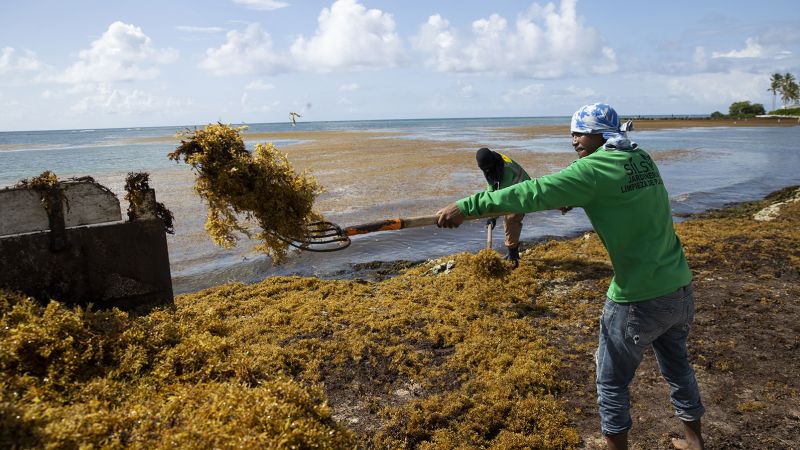3 min
Florida Tech, Kennedy Space Center to Study Waste Treatment in Space
Associate professor of chemical engineering Toufiq Reza has spent years researching sustainable waste conversion techniques on Earth. When Florida Tech offered him a sabbatical, he took the chance to learn what that conversion process looks like in outer space while further strengthening the university’s already deep ties to NASA. In Fall 2023, Reza became the first professor to leverage school funding to spend a semester at NASA’s Kennedy Space Center. He worked with Annie Meier, who leads a team developing ways to convert astronaut-generated trash into fuel during missions, known as in-situ resource utilization (ISRU). “I wanted to do something different that I haven’t done. I have been doing research in my field; I know who the players are,” Reza said.” I could have easily gone to a research lab at another university and continued my research. But I wanted to learn something new.” His sabbatical prompted a new partnership between NASA Kennedy and Florida Tech. This summer, they signed an annex to their existing Space Act Agreement which will allow Kennedy Space Center (KSC) and the university to conduct joint research regarding logistical waste treatment and ISRU. “At NASA, we want researchers who are doing something that could help us, that could be synergistic, and to not reinvent the wheel,” said Jose Nuñez, university partnerships and small sat capabilities manager at NASA Kennedy. “The goal is to find professors who can benefit the agency in an area that needs more research.” As part of the agreement, KSC will share raw materials, waste simulant samples and information such as gas composition data with Florida Tech. In return, the university will analyze and share findings, such as what useful products can be taken from trash-to-gas waste for use as plant nutrients, and evaluate value-added applications. “I will encourage students to work on some of their technologies, test them in our lab and vice versa. This is a massive thing,” Reza said. “We can learn from each other to help each other.” Already, Reza’s students have visited Meier’s lab, and Meier and her KSC team came to Florida Tech to present her research and visit the university’s research facilities. Meier’s goals are similar to Reza’s: Both researchers want to find sustainable ways to convert trash and waste into energy, materials and chemicals. However, the methods aren’t completely transferrable between the two different environments of Earth and space. On Earth, Reza explained, waste can be burned or stored in a landfill. Neither of those options are viable in space. “You cannot dig up the moon soil and start burying. There is no oxygen or air to actually burn it…there is no water,” Reza explained. Currently, astronaut waste, such as food packaging, clothing, hygiene items and uneaten food, is launched back towards Earth and incinerates on the way there. However, Meier is working to advance waste mitigation technology, which Reza got to see up close. One of her projects, the Orbital Syngas/Commodity Augmentation Reactor (OSCAR), mixes oxygen, heat and trash in a reactor, which burns the trash and collects the gas it creates. Over the course of the semester, Reza assisted in KSC’s Applied Chemistry Lab, where Meier’s research took place. He offered both expertise and extra hands, from helping measure samples to reading through literature. He also took note of innovative technology for potential new research ideas, such as potentially developing a way of protecting metal coatings in space using the tools he learned. Meier’s waste conversion technology is built for a space environment, but Reza said it is unlikely that her complete systems could be used for waste conversion on Earth. Just as water and oxygen are limited resources in space but are plentiful on Earth, vacuums are plentiful resources in space but are expensive to create back home. However, that doesn’t stop the researchers from seeking inspiration through the new partnership. “We can learn from them and then take a part of their technology and integrate it with ours to make our technology more sustainable and vice versa,” Reza said. “They can improve their technology by utilizing part of our technology as well. As Meier said, “I wanted to learn on the terrestrial side how we can infuse some of our technology, and he wanted to learn from us to grow into the space sector, so it was a really cool match.”







